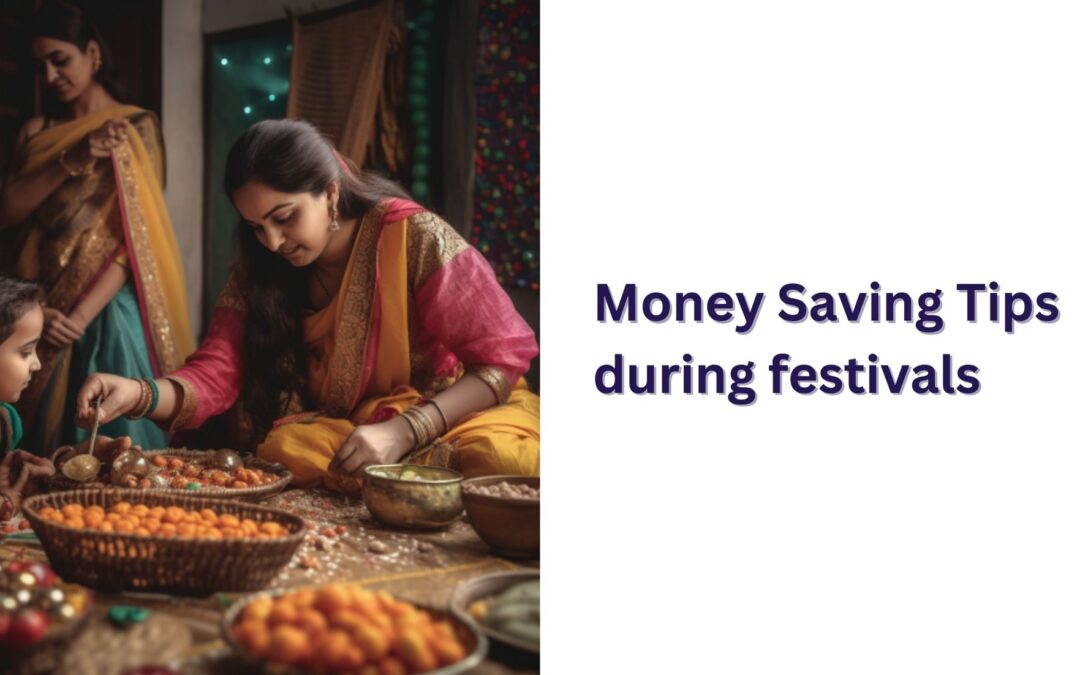
by Toulika | Nov 10, 2023 | Culture & Money, Digital Gold
Diwali, the festival of lights, brings with it an abundance of joy, warmth, and an opportunity to adorn oneself in the finest. Among the myriad choices, Gold Jewellery stands out as a timeless symbol of elegance and tradition. In this article, we delve into the world of Gold Jewellery, exploring not only its aesthetic appeal but also its cultural and historical significance.
Do you want to save in gold digitally? Download the Jar App now.
Importance of Gold Jewellery
The allure of Gold Jewellery extends beyond fashion. It is a statement, a reflection of one’s style quotient, and an embodiment of sophistication. Choosing the right piece can elevate your overall look, making you stand out during the festive celebrations.
Historical Significance
Gold Jewellery carries a rich history, passed down through generations. Its timeless elegance has transcended cultural and temporal boundaries, symbolizing prosperity, power, and enduring beauty. Today, donning gold connects us to our heritage in a way no other accessory can.
Trending Designs
The modern era witnesses a fusion of tradition and modernity in Jewellery designs. From classic motifs to contemporary twists, the options are endless. Keeping abreast of the latest trends ensures your style remains not just relevant but ahead of the curve.
Choosing the Right Piece of Gold Jewellery
Selecting the perfect piece of Gold requires careful consideration. Factors such as occasion, personal style, and craftsmanship play crucial roles. This section guides you through the process, ensuring your choice aligns seamlessly with your personality.
Popular Gemstone Combinations
For those seeking a touch of color, combining gold with gemstones is a trend that never fades. Discover the enchanting world of gemstone and gold combinations, adding a vibrant allure to your festive ensemble.
Maintenance Tips
Preserving the gleam of your gold pieces is essential. Explore practical tips and tricks to keep your jewellery looking as radiant as the day you acquired it, ensuring its longevity and shine.
Customization Options
Tailoring your gold jewellery to match your unique taste is a luxury worth indulging in. Uncover the world of customization, where your imagination shapes the design, creating a piece that tells your story.
Budget-Friendly Picks
Luxury need not always come with a hefty price tag. Navigate through affordable gold jewellery options, proving that style can be accessible to everyone, regardless of budget constraints.
Fashion Influences
Celebrities often set the tone for fashion trends, and gold jewellery is no exception. Explore how icons incorporate gold into their looks, drawing inspiration for your festive wardrobe.
Gold Jewellery in Diwali Celebrations
Beyond the glitz and glamour, gold holds profound cultural significance during Diwali. Understand the symbolism and tradition behind wearing gold during this auspicious festival.
Gold Jewellery To Increase Your Style Quotient This Diwali
Elevate your festive look with the brilliance of Gold Jewellery. Discover how incorporating gold into your Diwali attire can transform your appearance, radiating elegance and grace.
Styling Tips
Enhance your outfit with strategic gold accents. From statement necklaces to delicate earrings, learn the art of styling gold jewellery to complement your ensemble, ensuring you shine bright throughout the celebrations.
Cultural Significance
Gold in India goes beyond being a fashion statement; it is deeply rooted in culture and tradition. Uncover the cultural significance of gold and its integral role in various ceremonies and rituals.
DIY Gold Jewellery Cleaning Hacks
Maintain the sparkle of your gold jewellery with simple do-it-yourself cleaning hacks. Easily achievable at home, these tips ensure your pieces remain as dazzling as ever.
Investment Perspective
Gold isn’t just a fashion accessory; it’s a valuable asset. Explore the investment potential of gold jewellery, combining aesthetic appeal with a smart financial choice.
Sustainable Practices
As ethical considerations gain importance, delve into sustainable practices within the gold jewellery industry. Discover brands and initiatives promoting responsible sourcing, making your purchase an ethical one.
Regional Variances
India’s diverse cultural landscape is reflected in the varying styles of gold jewellery. Explore the regional nuances, each telling a unique story through design and craftsmanship.
Emotional Attachments
Every piece of jewellery carries a story, often tied to significant life events. Unearth the emotional attachments people form with their jewellery, making each piece a cherished memory.
The Art of Gifting Gold Jewellery
Gifting gold is a timeless tradition, symbolizing love and blessings. Understand the art of choosing the perfect gold gift, creating moments that last a lifetime.
Trends for the Season
Curious about what’s hot this Diwali season? Dive into the latest trends in gold, ensuring you stay ahead in the fashion game during the festive celebrations. Take a look at the gold collection at Viba now!
FAQs
Can I wear gold jewellery every day?
Absolutely! Gold is versatile and can be worn daily. Opt for lighter pieces for casual wear and save the statement pieces for special occasions.
How do I clean my gold jewellery at home?
Mix mild detergent with warm water, soak your jewellery for a few minutes, gently scrub with a soft brush, and rinse. Pat dry with a soft cloth for a sparkling finish.
Is gold a good investment?
Yes, gold is a reliable investment. It retains its value over time and serves as a hedge against inflation. Consider it a fusion of financial prudence and aesthetic appeal.
Can I customize my gold jewellery design?
Absolutely! Many jewellers offer customization options. Work closely with them to create a piece that reflects your style and preferences

by Toulika | Nov 10, 2023 | Culture & Money, Investment
Wondering how to get a loan with a bad credit score? We have got you covered. It can be daunting, but it’s not impossible. This comprehensive guide will walk you through the intricate process, offering practical advice, expert insights, and solutions to help you navigate the challenging world of financial borrowing.
On a side note, would you like to save money in 24k digital gold? Download the Jar App and start saving today!
How to Get a Loan with a Bad Credit Score
Understanding Your Credit Score
In this section, we delve into the crucial aspect of understanding your credit score. Why does your credit score matter? Your credit score is a numerical representation of your creditworthiness, and it significantly influences your loan approval chances. Discover how to interpret your score and identify areas of improvement.
Assessing Loan Options
Uncover the diverse options available for individuals with a less-than-ideal credit history. From personal ones to secured ones, explore the pros and cons of each. Are there specialized loans for bad credit? Yes, and we’ll guide you through them, providing insights into their eligibility criteria and potential benefits.
Strategies to Improve Your Credit Score
Boosting your credit score is a proactive step towards securing better loan terms. Learn practical strategies to enhance your creditworthiness over time. Can I get a loan while working on my credit score? Absolutely, and we’ll show you how to strike a balance between improving your credit and meeting your immediate financial needs.
The Application Process
Navigating the loan application process is crucial. From gathering documentation to filling out forms, we break down each step to simplify the journey. What documents are typically required? Our detailed guide ensures you prepare well, increasing your chances of a successful application.
What Documents Are Typically Required?
When you embark on the journey to secure a loan with a less-than-stellar credit score, prepare with the right documents is paramount. Lenders need to assess your financial standing, and providing the necessary paperwork expedites the process. Here’s a breakdown of the documents typically required:
- Proof of Identity: To establish your identity, lenders often ask for a government-issued photo ID, such as a driver’s license or passport.
- Proof of Income: Demonstrating your ability to repay the loan is crucial. You may need to provide recent pay stubs, tax returns, or bank statements as proof of a stable income.
- Employment Verification: Some lenders may request verification of your employment to ensure a consistent income source. This can be in the form of a letter from your employer or recent pay stubs.
- Credit History: While the focus is on bad credit loans, lenders still want insight into your credit history. You might have to provide a detailed credit report, highlighting any challenges you have faced.
- Collateral Information (if applicable): If you’re applying for a secured loan, details about the collateral, such as property or assets, will be necessary.
- Residential Proof: Lenders often require proof of residence, which can be in the form of utility bills or a lease agreement.
- Outstanding Debt Information: Complete transparency is key. Disclose any existing debts or financial obligations to give lenders a comprehensive view of your financial situation.
- Bank Statements: Providing recent bank statements gives lenders insights into your financial habits and cash flow.
- Loan Purpose: Some lenders may ask for details about how you intend to use the funds. Having a clear purpose can instill confidence in the lender.
- Personal References: Including personal references who can vouch for your character and reliability may be required.
Securing a Co-Signer
Having a co-signer can significantly improve your loan approval odds. Understand the responsibilities involved and how to choose the right co-signer for your situation.
Negotiating Loan Terms
Entering into an agreement requires careful consideration of terms and conditions. Discover tips for negotiating favorable terms that align with your financial goals. Are there specific terms I should be wary of? We highlight potential pitfalls and offer guidance on ensuring a fair and manageable loan agreement.
Building a Positive Financial Future
Securing a loan is not just about the present; it’s an opportunity to shape a positive financial future. Explore tips for responsible borrowing and long-term financial planning. How can a loan impact my credit score positively? We delve into the nuances, shedding light on the symbiotic relationship between loans and credit scores.
Conclusion
How to get a loan with a bad credit score is a challenge, but armed with knowledge and the right strategies, it’s a surmountable one. This guide empowers you to navigate the financial landscape confidently. Remember, every financial decision shapes your future—make them wisely.
Frequently Asked Questions
Can I Get a Loan with a Bad Credit Score?
Yes, it’s possible. While traditional lenders may pose challenges, there are specialized lenders willing to work with individuals with bad credit.
What Is the Minimum Credit Score for Loan Approval?
The minimum credit score varies among lenders. Explore options tailored to your credit situation, as some lenders focus on factors beyond credit scores.
How Quickly Can I Improve My Credit Score?
Improving your credit score takes time, but adopting responsible financial habits can yield positive results in a matter of months.
Is a Co-Signer Necessary for All Loans with Bad Credit?
While not mandatory, having a co-signer enhances your credibility and increases the likelihood of the approval with favorable terms.
Can I Use the Loan to Rebuild My Credit?
Yes, timely repayment can positively impact your credit score, contributing to long-term financial health.
What Happens if I Default on a Loan with Bad Credit?
Defaulting can worsen your credit score and lead to legal consequences. Communicate with the lender to explore alternative solutions.

by Toulika | Nov 8, 2023 | Culture & Money, Savings
The festive season in India is a time of unmatched splendor and cultural richness. It’s a period when families and communities come together to celebrate with grandeur. While the festivities bring immense joy, they can also put a strain on your wallet. In this guide, we’ll provide you with an array of invaluable Money Saving Tips to ensure that you can revel in the festivities without compromising your financial well-being.
Let’s explore how you can strike the perfect balance between merriment and financial prudence. Do you want to save in 24k digital gold this festive season? Download the Jar App and start saving now!
Money Saving Tips – Budgeting for Festivities
1. Set a Festive Budget
Your first step to a budget-friendly festive season is setting a clear budget. Determine how much you can comfortably spend without affecting your overall financial stability. Allocate specific amounts for gifts, decorations, food, and other expenses. One major money saving tip is having a well-defined budget is your compass to navigate the season without financial worries.
2. Plan Your Gifts
Gift-giving is an integral part of Indian festivals, and it’s easy to get carried away. Instead of splurging on expensive presents, consider thoughtful and budget-friendly options. Handmade gifts, personalized tokens of affection, or even heartfelt letters can be just as meaningful, if not more so, without causing a dent in your wallet.
3. Prioritize Celebrations
India boasts a rich tapestry of festivals, each with its unique customs and traditions. While it’s tempting to partake in all of them, it can also be financially overwhelming. Another money saving tip is that you should prioritize the festivals and events that hold the most significance for your family. By doing so, you can not only save money but also ensure that you can genuinely enjoy the celebrations you choose to participate in.
1. Shop During Sales
One of the best ways to make your money go further during the festive season is by shopping during sales. Many retailers offer substantial discounts and promotions during this time. Be on the lookout for these sales events and take advantage of the significant savings they can provide.
2. Compare Prices Online
Before making any purchase, take a few moments to check prices online. The internet is a treasure trove of deals and offers. There are numerous comparison websites and apps that can help you find the best prices, especially for electronics and appliances. By spending a little time online, you can save a lot of money.
3. Buy in Bulk
For non-perishable items like decorations, consider buying in bulk with friends or family. This strategy not only reduces the cost per unit but also ensures you have enough supplies to last for several years. This not only saves money but also simplifies your preparations for subsequent festive seasons.
Money Saving Tips for Traditional Celebrations
1. DIY Decorations
One of the most enjoyable aspects of the festive season is decorating your home. Instead of purchasing expensive decorations, consider getting creative and making your own. DIY decorations not only add a personal touch to your celebrations but also offer an opportunity for quality family time. Additionally, crafting your decorations can be incredibly cost-effective.
2. Cook at Home – Money Saving Tips
Food is an integral part of any Indian festival. Dining out can quickly drain your budget. To save money and add a personal touch to your festivities, prepare traditional dishes at home. Involve your family in the cooking process, turning it into a memorable family bonding experience.
3. Handmade Rangoli and Gifts
Rangoli is a stunning art form that is deeply associated with Indian culture. Instead of purchasing expensive rangoli designs, try your hand at creating your own. It’s a fun and creative activity that adds a unique flair to your home’s decorations.
Similarly, opt for handmade gifts. These not only hold more sentimental value but also showcase your creativity. From knitted shawls to hand-painted pots, the possibilities are endless. Handmade gifts can be more affordable and cherished by your loved ones.
Conclusion
The festive season in India is a time of grandeur, culture, and joy. It’s a period when families create cherished memories. By implementing these Money Saving Tips, you can participate in the festivities without compromising your financial well-being. The key is to strike the right balance, focusing on what truly matters and finding creative, budget-friendly ways to celebrate.
FAQs (Frequently Asked Questions) on Money Saving Tips
Any money saving tips on clothing during the festive season?
Clothing is a significant expense during festivals. Consider reusing or altering your existing traditional outfits to give them a fresh look. You can also explore second-hand clothing stores or borrow from friends and family. It’s a sustainable and budget-friendly approach to looking your best.
Are there specific apps for finding festive discounts?
Absolutely! Many e-commerce apps in India, such as Flipkart, Amazon, and Paytm, offer exclusive festive discounts and cashback offers. Download these apps to stay updated on the latest deals and savings opportunities.
What about eco-friendly celebrations for Money Saving Tips?
Eco-friendly celebrations not only benefit the environment but can also save you money. Use eco-friendly decorations, opt for clay idols, and reduce waste during festivities. By embracing sustainability, you can celebrate conscientiously and frugally.
Can I still enjoy the festivities on a tight budget?
Absolutely! The essence of Indian festivals lies in togetherness, traditions, and love. Focus on these aspects, spend quality time with your loved ones, and participate in free community events. It’s possible to celebrate the true spirit of the festivals even on a tight budget.
Any Money Saving Tips for saving on electricity bills during festivals?
Festive decorations can lead to higher electricity bills. Use LED lights, which are energy-efficient, turn off decorations during the day, and avoid using high-energy-consuming appliances during peak hours. These small adjustments can save both energy and money.
How can I resist impulse buying during the festive season?
Impulse buying is a common pitfall during the festive season. To avoid it, make a shopping list and stick to it rigorously. Avoid shopping when you’re stressed or in a hurry. Take your time to make thoughtful and budget-conscious choices.

by Toulika | Nov 8, 2023 | Culture & Money, Investment
In today’s fast-paced world, financial emergencies can arise at any time. Whether it’s an unexpected medical bill, a sudden car repair, or urgent school fees, access to quick cash can be a lifesaver. Fortunately, the rise of online lending platforms has made it easier than ever to secure quick loans online, providing a convenient and accessible solution for those in need of immediate financial assistance.
Do you want to save your money in 24k digital gold? Here’s an amazing opportunity for you. Save in just 45 seconds by downloading the Jar App.
What are Quick Loans?
Quick loans, also known as personal loans or payday loans, are short-term loans that are typically designed to be repaid within a few months or a year. These loans are often characterized by their ease of application, minimal paperwork requirements, and fast approval processes, making them ideal for addressing urgent financial needs.
Benefits of Quick Loans Online
Getting quick loans online offers several advantages over traditional bank loans, including:
- Convenience: Online applications allow you to apply for a loan from the comfort of your home, at any time of day or night.
- Speed: The application process is often streamlined, with approvals and disbursement of funds occurring within hours or even minutes.
- Flexibility: Quick loans can be used for a variety of purposes, including medical expenses, car repairs, debt consolidation, or even personal emergencies.
Eligibility Criteria
To be eligible for quick loans online, applicants typically need to meet certain criteria, such as:
- Being of legal age (usually 18 or above)
- Having a valid bank account
- Possessing a steady source of income
- Maintaining a good credit history
How to Apply for Quick Loans Online
The application process for quick loans online is typically straightforward:
- Choose a Reputable Lender: Select a reputable online lending platform that is licensed and regulated.
- Check Eligibility: Review the lender’s eligibility criteria and ensure you meet the requirements.
- Complete the Application: Provide accurate personal and financial information, including income details and bank account details.
- Upload Documents: Upload any required documents, such as identity proof, income proof, and bank statements.
- Review and Accept Terms: Carefully review the Getting Quick Loans Online terms and conditions, including interest rates, repayment options, and fees.
- Await Approval: Once the application is submitted, the lender will assess your eligibility and provide an approval decision.
- Receive Funds: Upon approval, the loan amount will be disbursed directly into your bank account.
Repaying Quick Loans Responsibly
It’s crucial to approach quick loans with responsibility and ensure timely repayments to avoid further financial strain. Here are some tips:
- Create a Repayment Plan: Develop a realistic repayment plan that fits your budget.
- Set Reminders: Schedule reminders for upcoming loan payments to avoid late fees.
- Consider Early Repayment: Explore early repayment options to reduce interest charges.
- Communicate with the Lender: Maintain open communication with the lender if you encounter any repayment difficulties.
Conclusion
Quick loans online can be a valuable tool for addressing unexpected financial needs, offering convenience, speed, and flexibility. However, it’s essential to approach these loans responsibly, carefully consider the terms and conditions, and prioritize timely repayments to avoid further financial complications. With careful planning and informed decisions, quick loans online can serve as a helpful bridge during challenging financial times.

by Toulika | Nov 8, 2023 | Culture & Money, Investment
Collateral loans, often referred to as secured loans, are a financial solution that can be a game-changer for those seeking funds. By pledging valuable assets as security, borrowers can access various benefits. In this comprehensive guide, we’ll delve into the world of collateral loans, addressing common questions and offering insights to help you navigate this financial option effectively.
Start saving in 24k digital gold. Download the Jar App now.
What is a Collateral Loan?
A collateral loan is a financial arrangement where a borrower provides an asset as collateral to secure the loan. This collateral serves as a safety net for the lender, allowing them to seize and sell the asset if the borrower defaults on the loan.
What Assets Can Be Used as Collateral?
Collateral loans can be secured by a wide range of assets, including:
- Real Estate: You can use your home or property as collateral for mortgage loans or home equity loans.
- Vehicles: Cars, motorcycles, and other vehicles can be used as collateral for auto loans.
- Jewelry: Valuable jewelry items, such as gold, diamonds, or gemstones, can serve as collateral, often with specialized pawnshops or jewelry lenders.
- Investments: Stocks, bonds, or other financial assets can be used to secure margin loans or securities-based loans.
- Savings Accounts or CDs: Some lenders accept your savings account or a certificate of deposit (CD) as collateral for secured personal loans.
- Business Equipment or Machinery: Businesses can use their equipment or machinery as collateral for loans, especially for expansion or acquisitions.
What Are the Advantages of Collateral Loans?
These loans offer several advantages, including:
- Lower Interest Rates: These loans typically come with lower interest rates compared to unsecured loans.
- Easier Approval: Lenders are often more willing to approve collateral loans, making them accessible even for borrowers with less-than-perfect credit.
- Larger Loan Amounts: The presence of valuable collateral allows for access to larger loan amounts.
- Potential Credit Improvement: Successfully repaying a loan can have a positive impact on your credit score.
What Are the Risks of Collateral Loans?
While collateral loans offer several benefits, there are risks to consider:
- Loss of Assets: If you’re unable to repay the loan, you risk losing the collateral you pledged.
- Interest and Fees: Failing to make timely payments can result in additional interest and fees, making the loan more expensive.
- Credit Damage: Defaulting on a collateral loan can negatively affect your credit score, so it’s crucial to manage the loan responsibly.
Are There Different Types of Collateral Loans?
Yes, these loans come in various forms, each tailored to specific assets. The most common types include mortgage loans (for real estate), auto loans (for vehicles), pawn shop loans (for jewelry and other items), and securities-based loans (using investments as collateral).
Understanding the Loan-to-Value Ratio (LTV)
LTV is the ratio of the loan amount to the appraised value of the collateral. Lenders usually have maximum LTV ratios, determining how much they are willing to lend based on the asset’s value.
How Do I Apply for a Collateral Loan?
To secure a collateral loan:
- Contact a lender and express your interest in obtaining a collateral loan.
- Provide detailed information about the collateral, including its appraised value.
- Complete the loan application process, which includes a credit assessment and collateral evaluation.
What Happens if I Can’t Repay the Loan?
If you find yourself unable to repay the loan, the lender can take possession of the collateral and sell it to recover the outstanding debt. In such cases, communication with the lender is essential to explore alternatives and potentially avoid collateral loss.
Are There Tax Implications for Collateral Loans?
These loans are typically not taxable, as they are considered debt rather than income. However, tax rules can be complex, so it’s advisable to consult a tax professional for personalized advice.
What Should I Consider Before Getting a Collateral Loan?
Before committing to a loan, consider these key factors:
- Assess the value of your collateral.
- Understand the interest rate and loan terms.
- Evaluate your ability to repay.
- Be aware of the consequences of default.
It’s crucial to thoroughly understand the terms and conditions and work with a reputable lender for a smooth collateral loan experience.
Conclusion
Collateral loans are a versatile financial tool that can provide a lifeline in times of need. While they offer numerous advantages, it’s essential to be mindful of the potential risks and make informed decisions. Before embarking on a this loan journey, assess your financial situation, choose a type that aligns with your needs, and ensure a clear understanding of the terms. By doing so, you can harness the power of these loans to achieve your financial goals.





